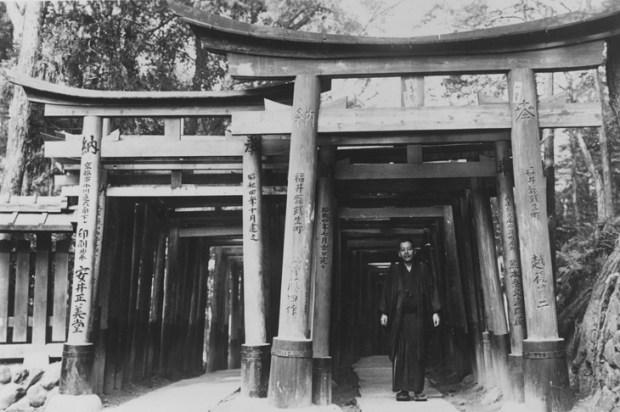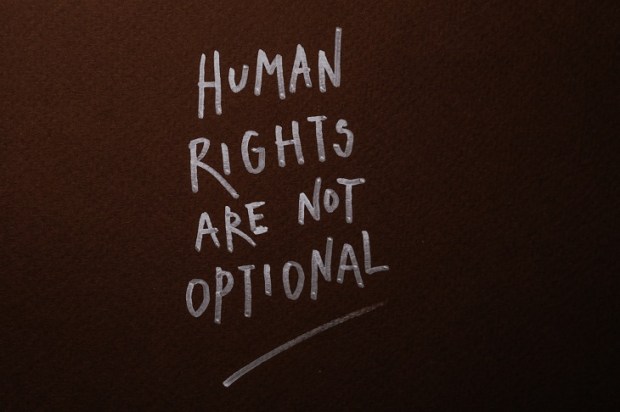In a glass office building that overlooked Elizabeth Quay and the Swan River, my two senior team leaders sat me down in the seminar room for a performance review. As the ‘No signal detected’ caption floated across an inactive projector slide on one wall, the first team leader opened a spiral notepad and scrawled the date in one corner.
‘You’ve been in the office for one month,’ he announced, side-eyeing his senior beside him. ‘The purpose of this meeting is to see what you need and how we can help you develop as a person.’
Develop as a person? This surprised me. I was not well-versed in the corporate sphere’s self-development lingo, having been plucked from the pyjama-clad world of PhD student hot desks, but I was certain that my job was to paste addresses into the correct Excel spreadsheets and receive an hourly rate. I didn’t recall any mention of ‘existential guidance’ in my contract.
The team leader went on to critique my performance, offering criticisms you might anticipate in a performance review such as being too friendly with lower-ranked employees and difficulty deciphering notes I had taken during a briefing. Weirdly, most of his statements began, ‘I was scared/disappointed/worried when I saw you…’
Much like a ‘gentle parent’, the team leader seemed to be trying to motivate my performance by communicating its impact on his feelings, making what should have been a professional conversation, a personal one. I wanted to answer his emotional register with, ‘I’m truly sorry about the inconvenience my mistakes caused — especially now that I understand the logic behind doing tasks as instructed. But don’t tell me about your feelings. I don’t care.’
But his approach is not uncommon. The past several years have seen countless articles about escaping the dreaded monotony of a ‘9-5 office job’ to follow a calling. This abhorrence for work has produced two opposing responses. The first is hustle culture: think of the hardy entrepreneur who makes enormous sacrifices — sleepless nights, subsisting on instant ramen, only showering in cold water — to develop their passion into a multi-million-dollar business.
The second response is the anti-work trend: after Covid, people quit work in droves having had a chance to evaluate their lives and appreciate a slower pace. The most recent demonstration of the anti-work trend is ‘lazy girl jobs’: a viral term referring to well-paying flexible jobs that allow for leisure time. These ‘anti-career approaches’ aim to undo the guilt that high-achievers experience when they fail to prove that they are the hardest workers, and instead focus on clarifying a sense of self and core values relating to life in general, as well as work.
Oddly, both hustle and anti-work culture entangle income-oriented work with the Search For True Meaning. Maybe this has only occurred to me because I have always been okay with the idea of a ‘boring 9-5.’ After all, there are plenty of other avenues to obtain a sense of meaning: creative endeavours, family life, religious and social communities, etc. Why dump all your spiritual eggs in the professional basket?
Certainly, performing work that contributes to society and family is a reliable predictor of self-esteem. However, that’s a step removed from trying to transform work into a soulmate or mental utopia. As the psychotherapist Esther Perel writes, ‘We used to go to work to “make a living”. Now we go to work to “make meaning”.’
Treating work as a meaning-making quest is not only unrealistic but dangerous. Doing so legitimises external figures (e.g., employers, KPI measures, social/commercial trends) as judges of personal worth and frames every work error — from a missing detail in an email, to an unhappy customer/client, to insufficient paperwork — as a moral failing.
This existential pressure results in work conversations like my end-of-year performance review that personalise mistakes and hold unnecessary moral freight.
The histrionic response towards otherwise mundane work tasks continued at the company even as I was leaving the job, shortly after the two team leaders developed a spreadsheet of project tasks marking in red ‘whose head would be on the chopping block’ if something went wrong. In an environment that equates work success with self-worth, mistakes like pasting the wrong address into a spreadsheet are more than inconvenient errors. They are justifications for reputational decapitation. In my case, most of those red boxes were under my name.
It is likely that employer’s attempts to employ the personal growth register is a well-intentioned attempt to humanise employees — an overcorrection from Franz Kafka’s dehumanising illustration of ordinary urban workers being transformed into literal insects. But constraining the self-discovery mission to professional, income-oriented activities is unhealthy. Managers who promise to help employees ‘develop as people’ presume the power to add or subtract from feelings of self-worth based on arbitrary figures like sales targets and satisfaction ratings.
The new expectation that employees would depend on their workplaces both financially and psychologically is amplified in young workers, who often lack the familial and/or communal support that their older counterparts may have. Rather than ruminating about the connection between work performance and personal worth, people would do well to seek meaning in other life spheres.
Frances An is a Young Voices contributor and a psychology PhD student at the University of Western Australia. Her thesis explores the organisational culture and history of market research.

























